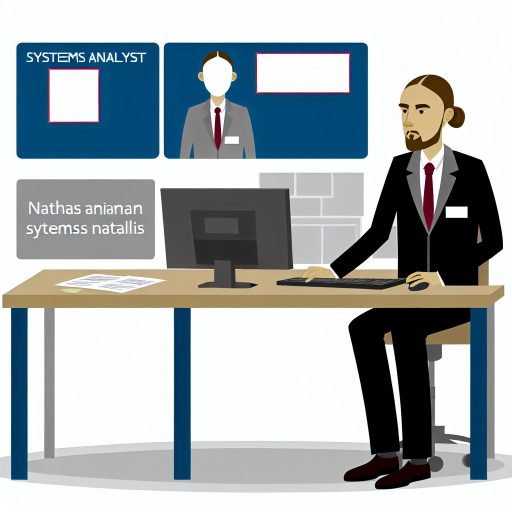Introduction
IT auditing involves evaluating and assessing an organization’s technology infrastructure.
IT auditing also examines processes and data management.
Auditors ensure compliance with regulations and best practices.
For government agencies, IT auditing is essential to maintain transparency.
It also supports accountability and security in their operations.
Compliance with laws and regulations remains a key focus of IT auditing.
Audits help safeguard sensitive information effectively.
Additionally, IT auditing improves operational efficiency in agencies.
Overview of IT auditing in government agencies
- Definition: IT auditing in government agencies involves assessing the management of IT resources.
- Importance: Helps to ensure efficient and effective IT operations.
- Scope: Covers various aspects such as data security, compliance, and risk management.
- Process: Involves evaluating IT systems, controls, and practices for adherence to standards.
Role of IT auditing in ensuring security and compliance
- Security: IT auditing helps identify vulnerabilities and recommend security measures.
- Compliance: Ensures adherence to laws, regulations, and policies governing IT operations.
- Risk management: IT audits help in identifying and mitigating potential risks in IT systems.
- Continuous improvement: Enables government agencies to enhance their IT infrastructure and processes.
Regulatory Requirements for Government Agencies
- Government agencies are subject to strict regulatory compliance.
- Laws like FISMA, HIPAA, and GDPR dictate IT auditing standards.
- Compliance ensures data security, privacy, and accountability.
- Auditors must adhere to these regulations to avoid penalties.
- Regular audits are necessary to maintain regulatory compliance.
Importance of Risk Assessment in IT Auditing
- Risk assessment identifies potential threats and vulnerabilities.
- It helps in prioritizing IT resources for maximum security.
- This process allows agencies to proactively address security gaps.
- Risk assessment reduces the likelihood of security breaches and data leaks.
- It enables continuous monitoring and improvement of security measures.
See Related Content: Role of Cyber Forensics in Corporate Compliance
Challenges Faced in IT Auditing for Government Agencies
When it comes to IT auditing for government agencies, many challenges arise.
These challenges often make the auditing process complex and time-consuming.
Below are key challenges encountered in IT auditing for government agencies.
- Lack of Resources and Expertise: Government agencies often have limited resources and expertise for IT auditing.
- Constantly Evolving Technology Landscape: The technology landscape constantly evolves with new threats and vulnerabilities.
Lack of Resources and Expertise
One major challenge in IT auditing for government agencies is the lack of resources.
Government agencies often operate with limited budgets and staffing levels.
This limitation makes conducting comprehensive IT audits difficult.
Auditors may struggle to identify and address IT risks without adequate resources.
Furthermore, government agencies may not have access to specialized IT auditing expertise.
IT auditing requires specific skills and knowledge that may not be present internally.
As a result, auditors often rely on external resources or specialized training.
To address this challenge, agencies can invest in IT auditing training for staff.
Transform Your Career Today
Unlock a personalized career strategy that drives real results. Get tailored advice and a roadmap designed just for you.
Start NowThey can also hire external auditors with specialized expertise.
Building internal capacity and leveraging external help enhances auditing capabilities.
This approach contributes to better protection of government IT systems.
Constantly Evolving Technology Landscape
Another significant challenge is the constantly changing technology landscape.
Technology advances rapidly and presents new threats regularly.
Auditors must stay informed about recent technology trends and security risks.
This knowledge is essential for effective assessment of government IT systems.
Keeping up with technology trends is difficult, especially with limited IT resources.
Auditors need ongoing training and professional development to maintain skills.
Government agencies can also partner with IT auditing firms specializing in this field.
Leveraging external expertise ensures comprehensive and effective IT audits.
Addressing these challenges requires strategic planning and resource allocation.
By focusing on resources, expertise, and technology knowledge, agencies improve IT auditing.
This investment ultimately helps protect critical government IT infrastructure.
You Might Also Like: What Does a Data Warehouse Architect Do?
When it comes to IT auditing for government agencies, several best practices ensure system and data security.
These insights help maintain the security and integrity of IT environments effectively.
Conducting regular audits and assessments
- Regular audits help identify any vulnerabilities or weaknesses in IT systems.
- Conducting assessments ensures the agency complies with regulations and standards.
- Regular system reviews allow agencies to address issues before they escalate.
- A systematic approach to audits maintains a secure and efficient IT environment.
- Regular audits help identify unauthorized access or data misuse.
Implementing strong security controls and protocols
- Strong security controls safeguard sensitive information effectively.
- Robust protocols protect data from evolving cyber threats.
- Access controls restrict unauthorized access to sensitive data.
- Encryption secures data both at rest and in transit.
- Regular updates to security protocols keep systems ahead of cyber threats.
Following these best practices in IT auditing safeguards government agency data and systems.
Regular audits and strong security controls ensure compliance with regulations and standards.
Agencies can maintain secure and resilient systems against cyber threats by implementing these measures.
Transform Your Career Today
Unlock a personalized career strategy that drives real results. Get tailored advice and a roadmap designed just for you.
Start NowSee Related Content: Career Path for Aspiring DevOps Engineers

Benefits of effective IT auditing for government agencies
- Improved data security and compliance
- Enhanced overall efficiency and performance
Enhanced Data Security and Compliance
Effective IT auditing plays a crucial role in enhancing data security.
It ensures compliance with regulatory requirements.
By conducting regular audits, government agencies can identify vulnerabilities.
They can spot gaps in their systems.
This allows agencies to take proactive measures to mitigate risks.
They can protect sensitive information effectively.
Moreover, IT audits help agencies stay abreast of the latest security threats and trends.
They can implement robust security measures.
These measures safeguard their data from cyber attacks and unauthorized access.
This instills trust among citizens and stakeholders.
The government demonstrates that it takes necessary steps to protect their information.
Improved Overall Efficiency and Performance
Effective IT auditing also leads to improved efficiency within government agencies.
It enhances performance by evaluating existing IT systems and processes.
Audits identify areas for optimization and automation.
This leads to cost savings and streamlined operations.
IT audits help agencies identify and address IT-related issues that hinder productivity.
They ensure that IT infrastructure remains up to date.
The infrastructure operates at peak efficiency.
Employees can then work more effectively.
Transform Your Career Today
Unlock a personalized career strategy that drives real results. Get tailored advice and a roadmap designed just for you.
Start NowThey serve constituents better.
IT audits play a crucial role in helping agencies operate more securely and efficiently.
This is essential in today’s digital landscape.
Delve into the Subject: Top Industries Hiring IT Support Specialists
Case studies on successful IT auditing in government agencies
Government agencies play a critical role in ensuring the smooth functioning of society.
They increasingly rely on technology in their operations.
IT auditing has become a vital part of these operations.
Here are some case studies that highlight successful IT auditing in government agencies.
- Department of Defense (DoD): The DoD is one of the largest government agencies in the world.
- It manages a complex network of IT systems.
- Through rigorous IT auditing practices, they have identified and mitigated cybersecurity risks effectively.
Internal Revenue Service (IRS): The IRS faces the challenge of safeguarding sensitive taxpayer information.
They implement comprehensive IT auditing processes.
These processes help detect and prevent unauthorized access to data.
Department of Homeland Security (DHS): The DHS protects the nation from various threats.
Their IT auditing efforts have enhanced the security of critical infrastructure.
They respond promptly to cyber incidents by leveraging audit findings.
- Environmental Protection Agency (EPA): The EPA has used IT auditing to streamline internal processes.
- This ensures compliance with environmental regulations.
- As a result, the agency has better data management and improved decision-making.
Department of Education (DoE): The DoE has applied IT auditing to secure student information systems.
The proactive approach prevents data breaches.
This helps maintain confidentiality of sensitive data.
Federal Bureau of Investigation (FBI): The FBI depends heavily on IT systems for investigations.
IT auditing enhances the reliability and accuracy of digital forensics.
- Strong leadership support is key to effective IT auditing.
- Senior management must commit to prioritizing cybersecurity.
- Continuous training and education keep IT audit teams updated on threats.
- Cross-functional collaboration between IT, security, and compliance teams tackles complex challenges.
- Regular monitoring and reporting help identify vulnerabilities quickly.
- Automation tools improve efficiency and free resources for strategic tasks.
Studying case studies, examples, and lessons from successful IT auditing provides valuable insights.
Transform Your Career Today
Unlock a personalized career strategy that drives real results. Get tailored advice and a roadmap designed just for you.
Start NowOrganizations can then implement robust cybersecurity measures.
This helps safeguard critical data effectively.
Essential Perspectives on IT Auditing for Government Agencies
This blog post explains crucial insights about IT auditing for government agencies.
First, it highlights the importance of IT auditing.
Next, it explores best practices that agencies should follow.
Ultimately, prioritizing IT auditing improves security and compliance in government operations.
Significance of IT Auditing for Security and Compliance
Government agencies must understand the role of IT auditing in spotting vulnerabilities.
It ensures data integrity and strengthens overall cybersecurity defenses.
Strategies for Implementing Robust IT Auditing Processes
Investing in strong IT auditing systems is vital for government agencies.
They should establish clear audit trails to track changes and access.
Continuous monitoring and evaluation of IT systems help reduce risks effectively.
By focusing on IT auditing, agencies can enhance protection against cyber threats.
They also ensure compliance with regulations and maintain public trust.




